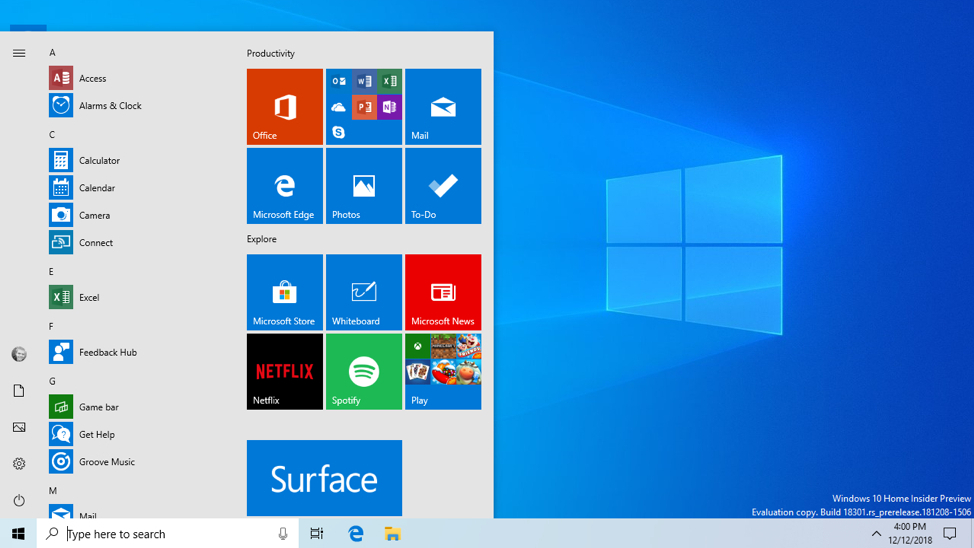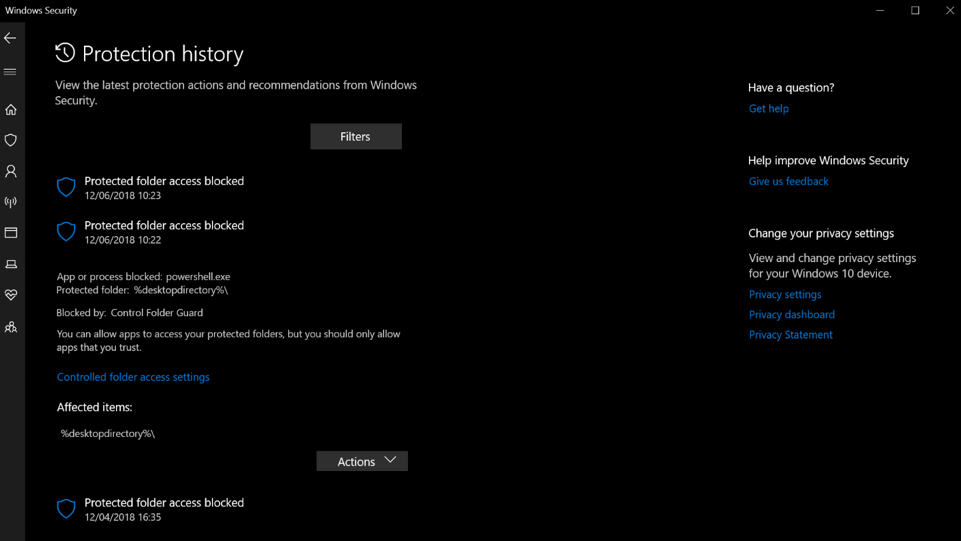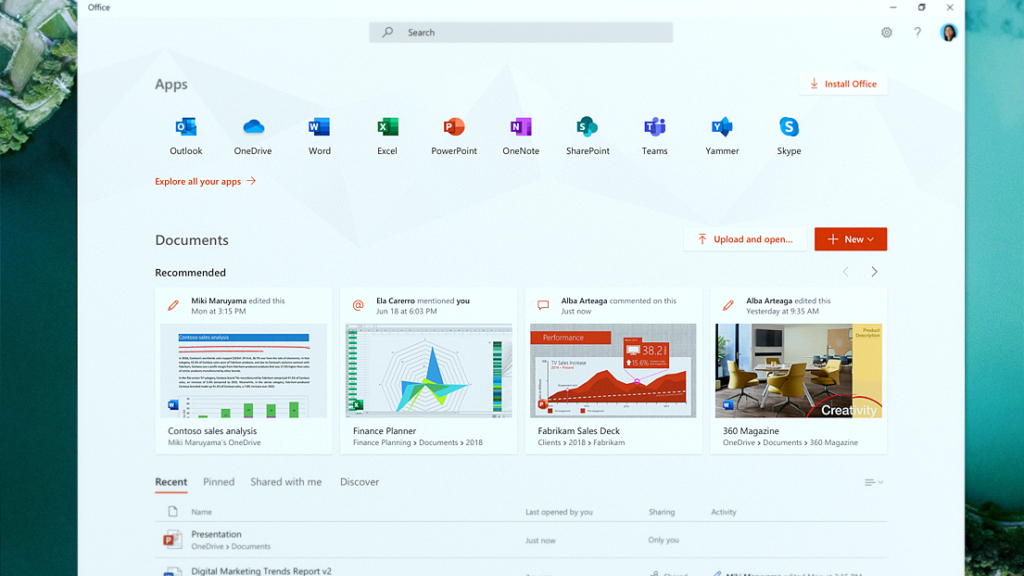New Windows 10 preview revamps Start menu and doubles down on security
Introducing Windows Sandbox, plus new password-free logins

Sign up for breaking news, reviews, opinion, top tech deals, and more.
You are now subscribed
Your newsletter sign-up was successful
Microsoft has pushed out a new preview build of Windows 10. It will be the last one of the year, and it’s a biggie, containing a host of new features including a revamped Start menu, not to mention the introduction of fresh security measures like Windows Sandbox.
Build 18305 (19H1 – meaning this is the update that will land in the first half of next year) is now available to Fast Ring testers.
One of the main changes is that Windows Sandbox has arrived for testing. Sandbox allows you to fire up a temporary isolated environment, in which you can run a potentially dodgy app, protecting your system from any of its possible malicious effects. And you can do this quickly and conveniently, without having to go to the trouble of implementing a virtual machine for the same task.
For more details on Sandbox, check out the full post we wrote on it yesterday. Unsurprisingly, at this early stage of testing, there are some compatibility issues with the feature, and it may well run sluggishly at times by the sound of things.
Another big change has come to the Start menu, which has been graced with a simplified default layout boasting a one-column design – meaning the menu doesn’t extend as far out into the desktop in terms of width – and a reduced number of top-level tiles.
Microsoft is clearly hoping for a neater-looking, more compact menu, but whether you like the new design will be a matter of personal taste (we’re still undecided). The company notes that this is part of ongoing work to enhance the Start menu.

Shoring up security
Also on the security front, a neat new feature is the ability to set up or sign in to Windows 10 via your phone rather than having to type in a password.
Sign up for breaking news, reviews, opinion, top tech deals, and more.
This requires you to link your Microsoft account to your phone, setting up a ‘password-less phone number account’, the instructions for which are provided in Microsoft’s blog post.
Once that’s all set up, you can forget about using passwords for signing into Windows, and instead employ either Windows Hello facial or fingerprint recognition, or a PIN, depending on the exact capabilities of your mobile device.
Protection History (in the Windows Security app) has been overhauled with various tweaks, the most important being that it now shows you not just what Windows Defender Antivirus has detected, but also gives you more detailed information concerning any threats, and actions that can be taken against them.
Speaking of Windows Defender, this also gets a new feature: Tamper Protection. If you turn this on, it provides additional defenses against potential tampering with Windows 10’s main security features, and it limits changes which aren’t made directly via the Windows Security app (thereby hopefully keeping a lid on potentially malicious activity).

Office hub
Another interesting move is the introduction of a new Office app that acts as a starting point to access Office files or applications. So for example, it will use the relevant clients (Word, Excel, and so forth) if they are installed on your machine, or rather, fire up the web apps if you don’t have the Office suite on your computer.
Note that this fresh Office app, or hub if you will, is based on the redesigned Office.com website.
In other minor changes, Clipboard History – which lists the items you’ve loaded into the clipboard – has been given a smarter look, and you can now choose a default tab to be active when you open Task Manager (if you’d prefer something other than Processes).
Cortana and Microsoft To-Do have also been brought closer together, so lists and reminders will be shared across both. In other words, if you ask Cortana to add an item to your shopping list, it will also automatically show up on your relevant Microsoft To-Do lists.
Indeed, there are a ton more changes in this build, and if you want to check out the full and exhaustive list, complete with known issues, head over to Microsoft’s blog post as ever.
- Some of our best laptops run Windows 10
Darren is a freelancer writing news and features for TechRadar (and occasionally T3) across a broad range of computing topics including CPUs, GPUs, various other hardware, VPNs, antivirus and more. He has written about tech for the best part of three decades, and writes books in his spare time (his debut novel - 'I Know What You Did Last Supper' - was published by Hachette UK in 2013).